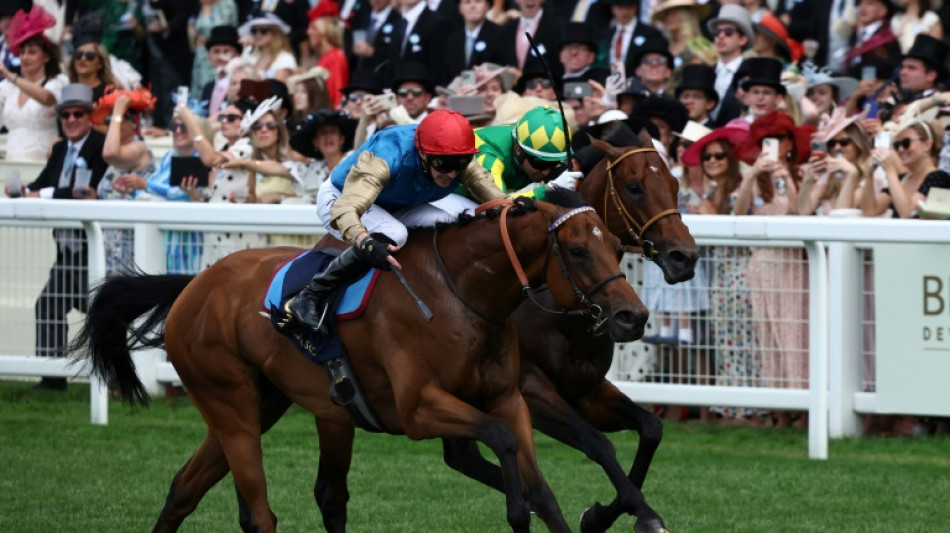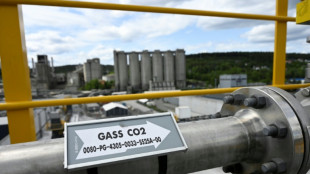

Racing betting tax hike will bring 'communities to their knees': Gosden
British racing is holding a one-day strike next week for the first time in its history in a tax dispute with the government.
All four race meetings on September 10 are cancelled in protest at the government's proposal to raise online racing betting tax from 15% to the same level as casino and gaming at 21%.
The Labour government is desperately seeking to raise revenues to bolster Britain's parlous finances.
The sport's governing body the British Horseracing Authority (BHA) claim "one single rate would have devastating consequences ...on an industry which is worth £4.1 billion ($5.5 billion) to the UK economy".
The BHA will learn how effective their lobbying has been when British Finance Minister Rachel Reeves announces her budget on November 26.
The government's plan has angered all sectors of the racing industry and AFP Sports offers a sample of the bitterness felt:
Trainer -- John Gosden
The British training great told AFP the measure would hit rural areas especially hard as there will be less demand at the sales and result in less horses being bred.
The 74-year-old three-time Prix de l'Arc de Triomphe winning handler explained: "The breeding industry is based in rural areas.
"Having less horses causes unemployment (the BHA claim 2,800 jobs across the industry would be lost in the first year) and waste. A lot of communities will be brought to their knees."
Gosden added: "If the tax goes up what will happen is it will encourage punters to bet where there is no protection whatsoever and is not regulated and the government get no tax returns.
"So the Treasury will end up with lower tax revenue."
Gosden says at the moment it is estimated five billion pounds is wagered on racing globally via "black market sites based in the Cayman Islands and elsewhere".
"I understand the need for the Exchequer to build revenues but don't let's go and destroy the second biggest spectator sport in the UK and a world leader in the racing and breeding industry."
Breeder -- David Redvers
The betting tax is "another nail in the coffin" for British racing, Redvers says, just as it was staging a fightback with attendances improving.
"British racing is taking a consistent amount of hits, for instance we are exporting our best horses due to a lack of competitive prize money here," Redvers noted.
"We are in a downward spiral."
Redvers highlighted the air of uncertainty at the sales over where the country will be in three years time.
"People are reining back on investments generally and without confidence in the gambles they take, the whole industry goes into decline.
"This government and its decisions are hugely damaging confidence at the moment."
Redvers hopes Charles Allen the new chairman of the BHA, will ride to the rescue.
Allen has strong ties with Labour and an impressive CV including overseeing London's victorious bid to host the 2012 Olympics.
"His first task will be a career defining moment and we all hope he has the clout to navigate us safely through these troubled waters," said Redvers.
Bookmaker -- Geoff Banks
Banks believes the tax will be "catastrophic for racing and for regulated betting in the UK" as it is the bookies who contribute £380 million a year to the sport through taxes, media rights and sponsorship.
Banks says betting shops have been disappearing from the high street for years and the rise in online tax will spark an exodus of big firms abroad.
"They are already set up and ready to go with a flick of the switch as they do not like the regulated environment in the UK," he said.
"It represents a 67 percent tax hike on what we are presently paying and I do not know where the government come across this number."
Banks is equally scathing of the racing authorities, like his fellow bookmakers "angry" they were not consulted over the day of action saying "racing appears to be in a vacuum".
"I think racing has worked itself into a position where it actively dislikes its own leading sponsors (for example a betting firm sponsors the Derby/Oaks and the oldest classic the St Leger) and funders of the sport, the bookmakers," he said.
"They say we are not paying enough for the product.
"The sport is going in completely the opposite direction to growth, it is in decline."
A.Sauer--BVZ




